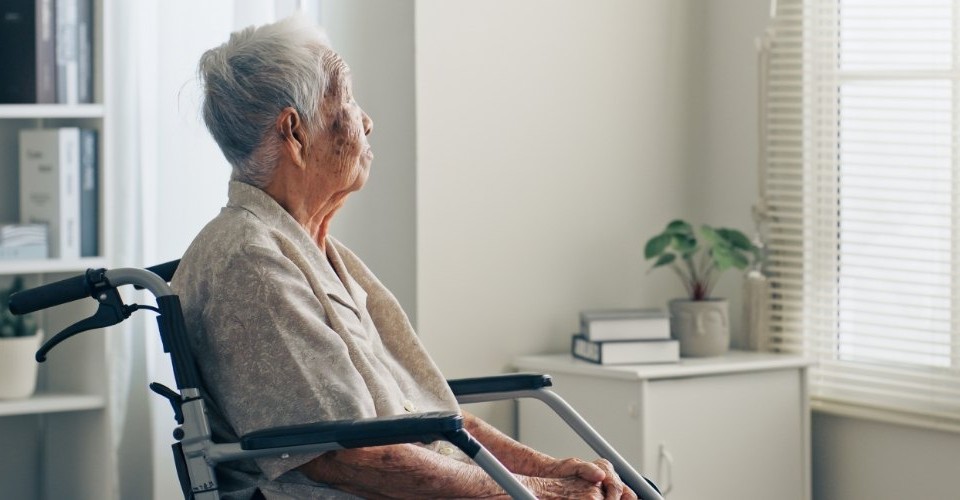How to Create an Effective Senior Care Plan

Home Care vs. Nursing Homes – Which One Is The Best Bet?
June 28, 2022
7 Tips That Will Help in Reducing Anxiety in Seniors
July 19, 2022Senior caregiving may develop gradually as a loved one becomes older, or it may happen suddenly as a result of an accident, a new condition, or a hospital stay. It is imperative to realize that the nature of providing care for someone can quickly transform and, so a senior care plan is of utmost importance.
Should anything happen, you will have a strategy to develop from and a resource list prepared to assist you in addressing any new or emergent needs.
What Is A Senior Care Plan?
A caregiving plan is designed for aging individuals to enjoy good health for a continued period. This can prove to be a powerful tool to enhance their quality of life.
Once a healthcare plan has been made, a family caregiver may efficiently organize their responsibilities and give each task their full attention. The care plan should be constantly evaluated and revised as necessary to guarantee that all new and growing needs are met. This enhances the level of care for the elderly and reduces the possibility of accidents. Additionally, this makes it simpler for the primary caregiver to take breaks since it enables others to assist with a loved one’s care whenever needed.
How to Begin Creating an Effective Senior Care Plan?
You can use the following tips to draw out your first care plan or to reexamine your present method of providing care.
Evaluate the Current Caregiving Requirements
Gathering information and managing any difficulties are the first steps in developing an elder care strategy. All aspects of a senior’s daily life should be considered in order to develop a comprehensive way of managing concerns. Some aspects you should take into account are as follows.
· Identify and Note Their Medical Needs
Start by becoming familiar with the various health issues that your relative has. Try and understand each chronic ailment that older individuals commonly have, as well as how these are likely to develop over time.
Make a list of the drugs your family member has to take every day, how they take them, and how frequently they should visit the hospital for checkups and operations. Discuss this list with your primary care doctor.
· Assess their Physical and Nutritional Needs
Once you’re aware of your loved one’s medical history and requirements, you need to evaluate and note down their dietary and physical needs. Some basic questions you’ll need to ask yourself before setting up a senior care plan are whether your patient may require help to use the restroom? Will assistance be required for everyday activities such as bathing, eating, or moving around? Do you, as the primary caregiver, have access to things that can help make these tasks easier? Are there any specific food-related restrictions you’ll need to take care of?
· Recognize the Mental Health Requirements
Senior adults frequently experience feelings of insecurity, vulnerability, and depression as they get older and lose some of the autonomy they have over themselves. Consider what you can do to provide them the ability to maintain relationships and help them develop their interests in a healthy way.
Look for ways to include them in your usual family activities. It will be simpler to care for your older relative, and they will have a better chance of effectively aging if they have a good attitude on life.
Set Achievable Care Goals
Depending on the findings of the caregiving requirements, make an organized list of all the problems faced by the patient, ranking the most important ones at the top. The immediate health and quality of life of your loved one are of the utmost significance. Whether or not you find issues in their daily schedule, setting goals is a useful technique to express your interest in supporting their well-being.
Remember to set goals that you can actually achieve, such as wanting your loved one to eat better or provide a safe space for them. When establishing these goals, don’t forget to take your loved one’s personal goals into account.
Tackle longer-term goals like financial planning, advance care planning, estate preparation,and funeral planning in the same way. Depending on the patient’s current health, these preparations may be urgent and crucial. Even while these issues might not be as urgent as fixing health problems, the sooner they are dealt with, the better.
Build Your Team of Caregivers
While you might consider yourself as the primary caregiver, it is crucial to have backup when necessary. The truth is, you cannot carry out all these duties on your own. Caregiver burnout is a common result of doing everything on your own because it can be stressful.
Developing a care team serves the dual purposes of recognizing all the resources at your disposal and fostering cooperation and communication among all those who are prepared to contribute to the care of your loved one. The most obvious choices for helping with a loved one’s daily requirements and personal care are friends, family, neighbors, volunteers, and other members of the community. It is essential to put together a group of positive people who can offer a helping hand or ear when you most need it for the senior care plan to work.
However, remember that if the medical, financial, or legal aspects of the care plan are complex, you shouldn’t shy away from contacting professionals.
Match Responsibilities and Execute the Plan
Finally, while some responsibilities may be very straightforward and will need to be assigned to specific people, other tasks may be a little more challenging. For instance, if your loved one is struggling with weight loss and you cannot be present at all times, ask a family or friend who lives nearby to help with delivering meals on time.
Try to pinpoint the unique skills or capabilities of each person and pair them with workable solutions. These personal resources may include living close to the patient, having spare time on their calendar, having extra money, and having skills like cooking, cleaning, having worked as a nurse, and being able to communicate. Use your imagination when evaluating each team member and coming up with suggestions for how they might be able to help.
Parting thoughts
Though your loved one might not need a senior care plan right away, collecting these pieces of information can help prevent a lot of stress and wasted time in the future. While the patient doesn’t necessarily need to give you access to their thorough financial or medical records just yet, asking them to compile an updated file with these details can be quite useful in an emergency. This also applies to prescription drugs, medical data, and legal documents. Should something happen, you’ll know where to find the information you need to act quickly and decisively when it comes to their care.
It is also important to remember that help offered by professionals like Cascade Valley is your best bet. Contact us, and we will be your prime supporters in giving your loved ones the best care and attention.




